News Headlines
 CU Boulder is part of a new, $100 million interdisciplinary partnership to address critical water security issues in the United States over the next five years, the U.S. Department of Energy announced.
CU Boulder is part of a new, $100 million interdisciplinary partnership to address critical water security issues in the United States over the next five years, the U.S. Department of Energy announced.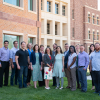 The Research & Innovation Office (RIO) has opened RIO Faculty Fellows 2020 cohort applications, which will be accepted through October 15. Selections will be announced in early November.
The Research & Innovation Office (RIO) has opened RIO Faculty Fellows 2020 cohort applications, which will be accepted through October 15. Selections will be announced in early November.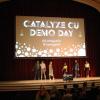 Twelve weeks ago, six student teams joined the Catalyze CU startup accelerator with innovative concepts and a hunch that their ideas might be marketable.
Twelve weeks ago, six student teams joined the Catalyze CU startup accelerator with innovative concepts and a hunch that their ideas might be marketable.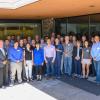 On August 17, eight University of Colorado startups founded on faculty research traveled to Silicon Valley for a day-long retreat with CU Boulder alumni investors and friends.
On August 17, eight University of Colorado startups founded on faculty research traveled to Silicon Valley for a day-long retreat with CU Boulder alumni investors and friends.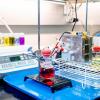 A low-cost, high-performance battery chemistry developed by CU Boulder researchers could one day lead to scalable grid-level storage for wind and solar energy.
A low-cost, high-performance battery chemistry developed by CU Boulder researchers could one day lead to scalable grid-level storage for wind and solar energy. The Arctic is warming faster than any other region on the planet, with enormous implications for the future of global climate. This year, CU Boulder researchers will play a leading role in a historic expedition to study one of the Earth’s most remote environments firsthand.
The Arctic is warming faster than any other region on the planet, with enormous implications for the future of global climate. This year, CU Boulder researchers will play a leading role in a historic expedition to study one of the Earth’s most remote environments firsthand.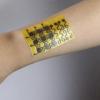 This technology is being developed by CU Boulder Associate Professor Jianliang Xiao of the Department of Mechanical Engineering in collaboration with Professor Wei Zhang of the Department of Chemistry. Their completely recyclable, self-healing e-skin may one day lead to improvements in human health, robotics, prosthetics and beyond.
This technology is being developed by CU Boulder Associate Professor Jianliang Xiao of the Department of Mechanical Engineering in collaboration with Professor Wei Zhang of the Department of Chemistry. Their completely recyclable, self-healing e-skin may one day lead to improvements in human health, robotics, prosthetics and beyond.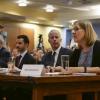 In opening statements, Rep. Kathy Castor, the committee’s chair, set up the tone of the hearing by focusing on research. “One of the most important things we can do as policymakers is make sure clean energy technology can move from the lab to the market,” Castor said.
In opening statements, Rep. Kathy Castor, the committee’s chair, set up the tone of the hearing by focusing on research. “One of the most important things we can do as policymakers is make sure clean energy technology can move from the lab to the market,” Castor said.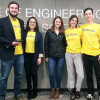 A year and a half after starting the company, CU Boulder startup ShineOn has grown to five employees and is preparing to launch its first product for cycling enthusiasts.
A year and a half after starting the company, CU Boulder startup ShineOn has grown to five employees and is preparing to launch its first product for cycling enthusiasts. When you pop a tray of water into the freezer, you get ice cubes. Now, researchers from CU Boulder and the University of Toronto have achieved a similar transition using clouds of ultracold atoms.
When you pop a tray of water into the freezer, you get ice cubes. Now, researchers from CU Boulder and the University of Toronto have achieved a similar transition using clouds of ultracold atoms.

